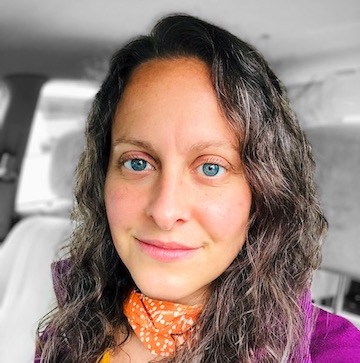Data Strategy
Ensuring a healthy data ecosystem is the mission of the Data Science Lab, which is the “Office of the Chief Data Officer” at Fred Hutch. As a recently merged, hybrid clinical care and research organization (in 2022), a number of new opportunities exist around data at Fred Hutch. We approach this via developing a modern, well documented, well implemented overall data strategy that evolves with the needs and capabilities of those leveraging data regardless of “where they live” from the clinic to the research groups.
Our Guiding Principles
Our approach to supporting Fred Hutch staff focuses on the following guiding principles:
Democratize appropriate data access and facilitate ethical data stewardship. Our work is driven by the idea that by making high quality, timely, well-governed data available to a wide range of staff members via tools that both meet their needs and make ethical data stewardship straightforward, we can empower individuals at all levels to make industry-leading data-driven decisions and discoveries.
Provide strategic coordination of our data infrastructure and alignment with evolving needs for data capabilities via a continuous improvement cycle. We aim to empower and engage our clinical, research, technical and analytics staff to participate actively in creating a transparent, continuously improving, shared data ecosystem that prioritizes responsiveness to necessary data capabilities and incorporates new technology to advance clinical care and biomedical research.
Play an active role in building and empowering communities of practice around data. Through the development of common data platforms, software, and tools with open documentation, training, and peer-to-peer engagement programs, we can build continuously innovating communities of practice who will be on the forefront of defining what best practices are for data in their fields.
Our Strategic Priorities
You can learn more about how we developed our first year (2023) strategic plan for supporting the overall data ecosystem at Fred Hutch Cancer Center here. During our second year we have continued to develop and refine our understanding of what Fred Hutch’s data needs are and how they might best be addressed through collective action.
Data Infrastructure, Partnerships and Strategy
Fred Hutch’s recent merger to form a hybrid clinical care and research institute brings a diversity of focus, skills, interests and capabilities that can spur innovation. To foster a feedback loop between biomedical discovery and clinical care, DaSL aims to create a robust and coordinated data ecosystem at Fred Hutch via guiding data infrastructure development with a comprehensive data strategy. The strategic coordination of our data infrastructure work via a continuous improvement cycle will allow us to be responsive to current capabilities in data to empower our staff at all levels to make data-driven decisions and discoveries. This includes identifying and integrating technology and philanthropic partnerships to leverage cutting edge innovations to advance our understanding of disease, therapeutics, and patient outcomes.
Data Governance
We work to create a collaborative network across Fred Hutch to provide additional support for data governance generally. This involves partnering with Fred Hutch departments like legal, compliance, IT and others to develop a comprehensive network of communication and documentation related to data governance, policy and procedures. DaSL supports investigators navigating resources at Fred Hutch regarding data policy and governance including data use agreements, software licensing, data oriented tech-transfer issues and guidance regarding IRB oversight of data use. We also support efforts surrounding Fred Hutch-wide patient consent processes, community oriented cancer education efforts, and data stewardship literacy in the clinical and research community.
Translational Analytics & Informatics
As a hybrid organization, we have the opportunity to make a direct connection via translational analytics and informatics between our clinical and research data capabilities. Our Translational Analytics and Research Informatics groups work together to bridge the gap between healthcare data and large scale laboratory generated datasets critical for supporting efforts such as the Sloan Precision Oncology Institute and clinical trials. This focus creates a continuous feedback loop between clinical care and research labs that will allow Fred Hutch to create a learning healthcare system to accelerate advancements in cancer care.
Data Product & Software Development
We aim to support both research and clinical staff by developing data products, including web applications, data analysis tools, process automation, and scientific software, to enable effective data use and integration into research and clinical care. Our collaborative approach not only supports researchers in piloting, sharing and publishing custom applications and software via our HCI group, but also involves partnering with IT to support integration of these tools into the Fred Hutch data ecosystem.
Training and Documentation
DaSL champions the democratization of data science expertise through comprehensive training and educational resources. Our training group develops training resources including in-person, hybrid and self-paced courses, workshops, seminars and documentation catering to a range of working professionals and trainees as well as the general public. A critical part of supporting an ever evolving and advancing data community filled with people interacting with data in different ways and scales is an overall focus on open documentation to facilitate knowledge sharing. We also lead and collaborate on the Biomedical Data Science Wiki, which aims to share best practices and foster community consensus and serves as an open, community knowledgebase, and valuable source to learn about available data science resources at the Fred Hutch and beyond.
Data Science Communities
DaSL is committed to fostering a vibrant community centered around data science at Fred Hutch to encourage democratized access to data science expertise, collaborations and mentorship. We recognize the value of community connections across diverse research and clinical arenas, and strive to connect individuals to community through the efforts such as the Fred Hutch Data Slack workspace, our Monday Morning Data Science newsletter, as well as hosting periodic events to bring people together in the DaSL Lounge.
Connect with Us
We hold open “Data Noon’s” where we present the current status of identified data programs and projects relating to our overall data strategy and integrations (2nd Tuesday of the month), our patient data (3rd Tuesday of the month) and our research data (4th Tuesday of the month). If you are Fred Hutch staff and would like to join the calls, or receive the email summaries, please email dasl-dpm@fredhutch.org to be added.
Amy fields the General Data House Call requests which is a 20 min discussion session to let us know what issues you’re seeing, desired data capabilities that would advance your work, or to get updates on current status of DaSL’s efforts around strategy.
Or email your questions or concerns to data@fredhutch.org.
Our Staff
Jeff Leek - Chief Data Officer
Jeff is Chief Data Officer, Vice President, and J Orin Edson Foundation Chair of Biostatistics at Fred Hutchinson Cancer Center. He leads the Fred Hutch Data Science Lab in building a data environment that is both cutting edge and friendly, supportive, open, and collaborative.
Amy Paguirigan - Deputy Chief Data Officer
Amy is the Deputy Chief Data Officer and Associate Vice President and has worked to support bench and biomedical data scientists in translational research at Fred Hutch. She is co-leading the development of the Data Science Lab to support democratization of data, expertise and technology across the spectrum of our merged institution.

